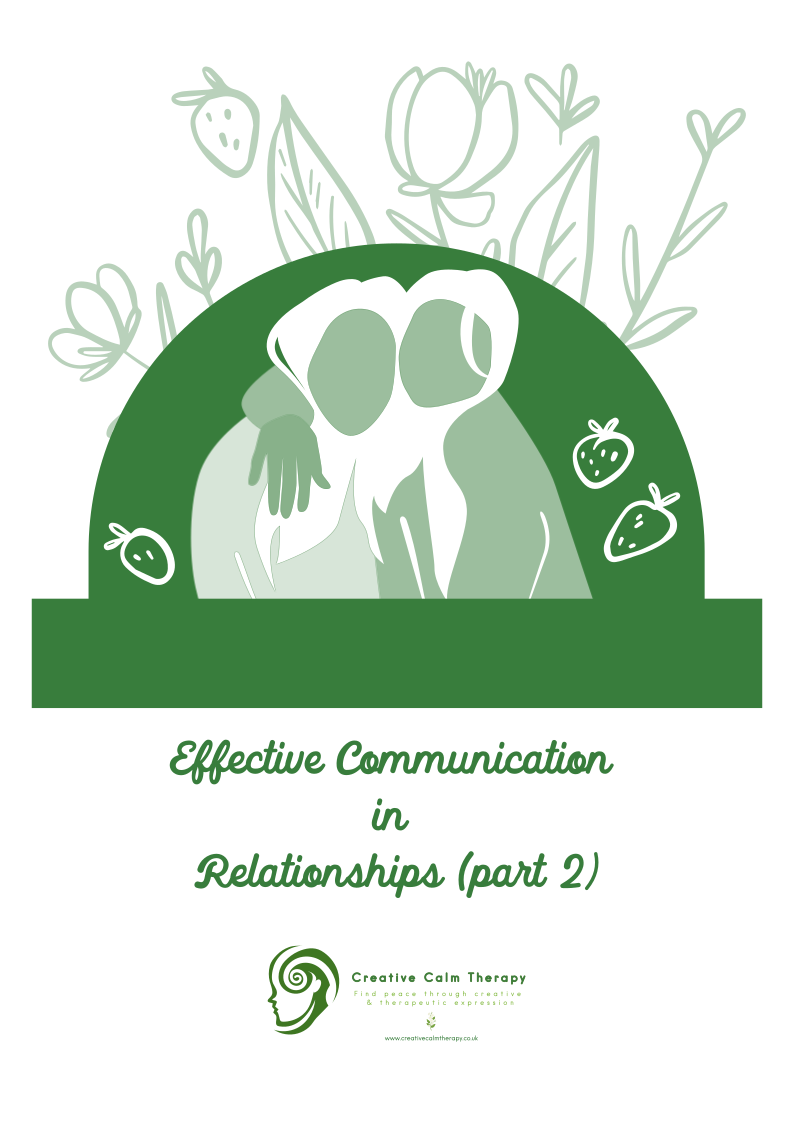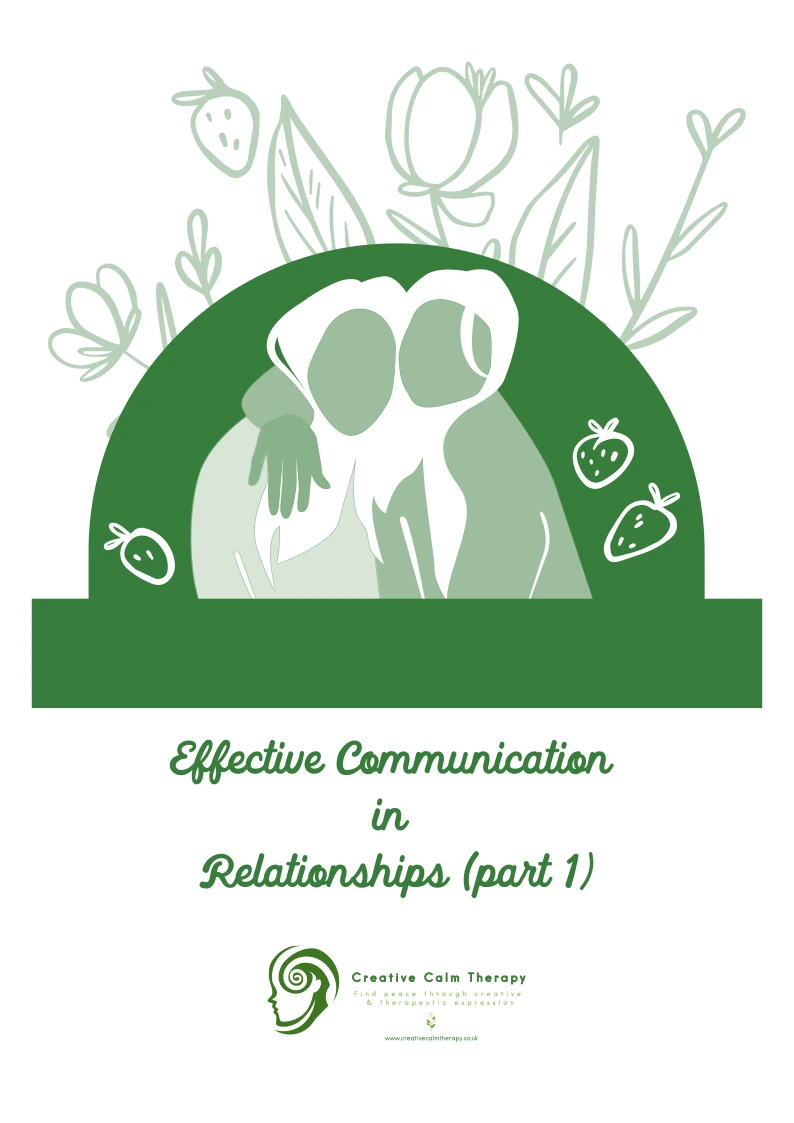Further to our blog entitled ‘Effective Communication in Relationships (Part 1)’, here are the final seven questions and answers, we hope you find them beneficial.
-
Parent/ child relationship – how do you communicate with children who also don’t listen without getting frustrated
Shift the mindset first
Instead of thinking “they’re not listening to me,” try thinking:
“They’re still learning how to listen, and I’m teaching them by example.”
That tiny reframe takes it from a power struggle to a teaching moment, and it helps you stay calm.
Get on their level (literally + emotionally)
- Physically: Crouch or kneel to eye level. It helps them feel seen and not scolded from above.
- Emotionally: Acknowledge what they’re into before redirecting.
“You’re having so much fun with those blocks! Can we pause for a second so I can tell you something?”
Make it a game or challenge
Kids respond way better to play than commands.
Try:
- “Can you beat me to the couch in 5 seconds?”
- “Let’s see how quietly we can walk like sneaky ninjas.”
Use silence and presence
Instead of repeating yourself louder or getting worked up:
- Make eye contact.
- Wait till they notice you’re waiting.
Sometimes your calm silence says more than raised voices ever could.
Give limited choices
Instead of “Put your shoes on!” say:
- “Do you want to wear the red shoes or the blue ones?” This gives them agency without giving them total
When you feel the frustration rising…
Step back if you need to. Even say it out loud:
- “I’m feeling a little frustrated, so I’m going to take a deep breath before I try again.” You’re modelling emotional regulation and not escalating the moment.
-
How do I differentiate between introversion, lack of interest, and a real communication issue?
I will assume this question is about adults and not children. So here are so ideas and thoughts:
| Observation | Might suggest… |
| They listen well and respond meaningfully, just quietly | Likely introversion |
| They seem disengaged no matter the topic or person | Likely disinterest |
| They seem willing but struggle with clarity or flow | Possible communication issue |
Introversion
What it looks like:
- Prefers deep, one-on-one conversations over group chats or small talk
- Might not initiate often, but engages meaningfully when approached
- Needs time to recharge after social interaction
- May appear reserved, especially in new settings
What helps:
- Give them space to warm up
- Don’t mistake quietness for disinterest
- Try connecting over meaningful topics rather than casual ones
Clue: They’re present, thoughtful, and responsive—just not chatty or socially forward.
Lack of Interest
What it looks like:
- Passive, distracted body language (glancing at phone, minimal eye contact)
- Short, non-committal answers
- Doesn’t ask questions back or try to keep the conversation going
- May steer the topic back to themselves or avoid the subject altogether
What helps:
- Try switching topics or settings—see if they perk up
- Check your own energy—sometimes they mirror that
- If it’s recurring, it may just be a mismatch in interests or chemistry
Clue: They can communicate well—they’re just not invested in the moment or the person (harsh, but sometimes true).
Real Communication Issue
(This can include anxiety, neurodivergence, language barriers, social processing issues, trauma history, etc.)
What it looks like:
- Struggles to follow the flow of conversation
- Long pauses or difficulty finding words
- Avoids eye contact or shows anxiety during interaction
- Misreads tone, sarcasm, or body language
- Seems more at ease in written or structured forms of communication
What helps:
- Slow down the pace, ask simpler or more direct questions
- Be patient and open—don’t finish their sentences
- Look for patterns over time and across settings
- Let them lead the rhythm when they’re ready
Clue: They may want to engage, but something is making it harder—there’s effort, but it’s not always effective.
-
How do you overcome not being patient enough to listen to your partner, however you are a good listener at work.
This one takes some inner searching. Questions to ask yourself:
- Does your partner not interest you anymore?
- Do work and your work colleagues appear more exciting to you?
- Have you identified if there is a pattern, perhaps you feel like this after a busy day and you’re tired. If so, have you spoken to your partner and asked them to perhaps give you half an hour, after you get in from work, so you can change your clothes/have a shower or bath/detox from the day.
- Is your partner not a good communicator, then see number 9 above.
-
How do you communicate with your ex-partner who had made up their mind not to communicate with you.
If it’s necessary to communicate with them, perhaps over finance or the children, perhaps find out what their preferred means of communication are. You may get a better response if they prefer that you email them or text. This may not be as quick as talking but at least you’ll be communicating.
Think about why you parted and whether there are any unresolved issues that they may be festering on, tackling these first may open the communication channel.
But here’s the truth: you can’t make someone talk if they’ve chosen not to. What you can do is approach it with clarity, self-respect, and zero games. Here’s a breakdown of what that looks like:
Accept the boundary, even if you hate it
If they’ve said, “I don’t want to talk,” pushing past that (even with good intentions) can backfire. Respect for their choice = respect for yourself too. It doesn’t mean you agree, it means you’re letting go of control.
Reframe: You’re not powerless. You’re powerful enough to walk away from one-sided conversations.
If you must say something (closure, co-parenting, logistics…)—do it once, clearly
- Keep it short, respectful, and specific
- No blaming, no guilt-tripping, no emotional spirals
- Focus on what’s necessary: “I understand you don’t want contact. I just needed to share this one thing. I won’t reach out again unless it’s necessary.”
Tip: Sometimes writing a message you don’t send is enough. It gets it out of your system.
Know what you’re really hoping for
- Are you looking for closure?
- Hoping they’ll change their mind?
- Trying to fix or explain something?
Get real with yourself about that. If you can’t get it from them, how can you start creating it for yourself?
If you share responsibilities (like kids or property)
- Stick to neutral, factual communication
- Use written formats (email, text, co-parenting apps)
- Keep it business-like and emotionally clean
- Document everything if needed
Let silence be your teacher
Their silence is communication—it’s saying something, even if it hurts. And in that space, you can ask:
“What would I be saying to myself if I didn’t keep waiting for their response?” – because your healing doesn’t need their participation. And sometimes silence is what finally helps us hear ourselves.
-
How can people of faith engage in conflict resolution while maintaining emotional regulation and active listening? I believe this is answered in questions numbered 1 & 3, which can be found in part 1 of this blog.
-
How do you navigate cultural and traditions where you are constantly silenced because there is a narrative that the man is the head and he has the final say.
This is not an area I have a lot of experience in; therefore, I have turned to other sources for guidance on this.
Acknowledge the tension without internalising it
It’s okay to respect your culture without agreeing with every part of it. You can honour where you come from and advocate for a different way of being heard.
Say to yourself:
“I can love my roots without letting them choke me.”
Pick your battles, but never lose your voice
You don’t have to fight every moment. Sometimes silence is strategy. But that’s not the same as being silenced.
Ask:
- Is this the right time and place?
- Is there a safer way to speak this truth later?
- Can I plant a seed now, even if I won’t see the change immediately?
Even small shifts—like asking questions instead of making statements—can start changing the air.
Find allies—quiet ones count too
You’re probably not the only one who feels this way. Connect with:
- Others who think like you (even if they don’t say it out loud yet)
- Men who are willing to listen and support change
- Community spaces (online or offline) that share your values
Sometimes just one “I understand you” can give you the strength to keep speaking.
Use the language your culture understands
Not just words—but values.
Instead of “This is wrong,” you can try:
- “I know our traditions say this… but what if we also considered…?”
- “Is there room for both leadership and partnership?”
- “Doesn’t a strong man listen, too?”
Speak in a way that sounds like care instead of combat—that’s often how you get people to actually hear you.
Know your power, even when it’s quiet
Being constantly told someone else has “the final say” doesn’t mean you don’t have influence. Sometimes, your quiet resistance is louder than words.
And sometimes… the most powerful thing you can do is build a life that reflects your truth—even if you have to do it slowly, gently, and under the radar.
-
How do you communicate with someone effectively when they are always defensive, and you’ve built resentment towards them? I believe that my responses to questions 3, 5, 6 & 7 (in part 1 of this blog) will help here.
However, continue to be humble and look inwards, ask why your resentment has grown, is it the shear fact that they are defensive or is there a reason behind this, perhaps they don’t feel heard!
Ask, are they ALWAYS defensive, we can forget the times they weren’t and just concentrate on the negative.
Remember, communication is the transmission of thoughts, ideas, emotions, feelings, wants, needs and desires and we don’t all communicate in the same way about the same things. Therefore, learn the language of those around you, of your loved ones and friends, listen intently, speak less and be humble.
Author – Andrew Rewell
MBACP Therapeutic Counsellor

